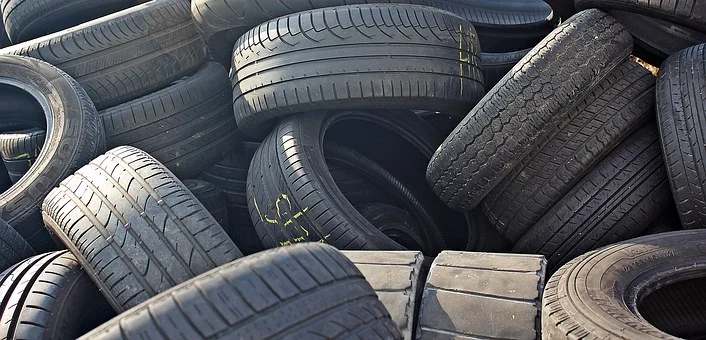

China has made great efforts to turn waste tires, also known as "black pollution", into “black gold”, as part of efforts to promote the healthy development of the industry and effectively improve the efficiency of resource utilization.

(Photo/Pixabay.com)
There were about 330 million waste tires produced in 2019, with a total weight of over 10 million tons. Every year, the amount of waste tires produced by scrapping continues to grow at a rate of 6 to 8 percent, according to data.
China’s Ministry of Industry and Information Technology recently issued the standard conditions for the comprehensive utilization of waste tires, which put forward standard requirements for various aspects such as technical equipment and process, ecological environmental protection, product quality control and safety management.
“In the past, local refining workshops for waste tires were rampant, and waste gas was discharged directly into the air, causing serious damage to the environment," said Zhu Jun, president of China’s Tire Recycling Association (CTRA).
Zhu Jun added that in recent years, with key technologies continuing to tackle the problem and environmental protection management being strengthened, new pyrolysis technology has become an important direction that has been taken in the comprehensive utilization of waste tires.
Since the Ministry of Industry and Information Technology issued the access conditions for the comprehensive utilization of waste tires in 2012, it has announced six batches of 80 enterprises that meet these conditions. "These enterprises represent the advanced level of the industry and play a leading role in the green recycling of waste tires,” Zhu said.
Under the guidance of the circular economy policy, in recent years, the comprehensive utilization industry of waste tires in China has developed rapidly, and the recycling utilization rate of waste tires has been increasing year by year.
In 2019, there were about 1,500 comprehensive utilization enterprises, and about 200 million waste tires were recovered and reused, with a recycling rate of about 60 percent.
Although many difficult challenges still need to be overcome, the surveyed enterprises in the industry are generally optimistic about the market prospects for the comprehensive utilization of waste tires. With the constant upgrading of national environmental policies and continuous industrial regulation, waste tires are being turned from "black pollution" to “black gold".
 Fire brigade in Shanghai holds group wedding
Fire brigade in Shanghai holds group wedding Tourists enjoy ice sculptures in Datan Town, north China
Tourists enjoy ice sculptures in Datan Town, north China Sunset scenery of Dayan Pagoda in Xi'an
Sunset scenery of Dayan Pagoda in Xi'an Tourists have fun at scenic spot in Nanlong Town, NW China
Tourists have fun at scenic spot in Nanlong Town, NW China Harbin attracts tourists by making best use of ice in winter
Harbin attracts tourists by making best use of ice in winter In pics: FIS Alpine Ski Women's World Cup Slalom
In pics: FIS Alpine Ski Women's World Cup Slalom Black-necked cranes rest at reservoir in Lhunzhub County, Lhasa
Black-necked cranes rest at reservoir in Lhunzhub County, Lhasa China's FAST telescope will be available to foreign scientists in April
China's FAST telescope will be available to foreign scientists in April "She power" plays indispensable role in poverty alleviation
"She power" plays indispensable role in poverty alleviation Top 10 world news events of People's Daily in 2020
Top 10 world news events of People's Daily in 2020 Top 10 China news events of People's Daily in 2020
Top 10 China news events of People's Daily in 2020 Top 10 media buzzwords of 2020
Top 10 media buzzwords of 2020 Year-ender:10 major tourism stories of 2020
Year-ender:10 major tourism stories of 2020 No interference in Venezuelan issues
No interference in Venezuelan issues
 Biz prepares for trade spat
Biz prepares for trade spat
 Broadcasting Continent
Broadcasting Continent Australia wins Chinese CEOs as US loses
Australia wins Chinese CEOs as US loses